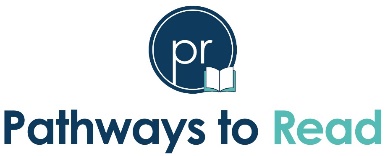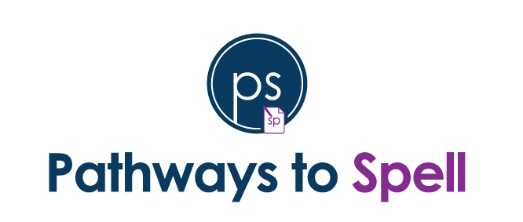School Curriculum
(linked at the bottom of the page are our progression of skills documents)
Curriculum Principles
Intent
Our curriculum puts the child at the centre of our caring, sharing, achieving school, where positive relationships, based on mutual trust and respect are at the heart of everything we do. Our ambitious curriculum has been designed to take account of the legal requirements of the Early Years Foundation Stage Curriculum and the Primary National Curriculum. It exposes our children to enriching experiences, immersing them in progressive knowledge and skills; equipping them with personal characteristics required to succeed in life. Greenvale provides a highly inclusive, nurturing environment where learners of all abilities enjoy their education and are helped to achieve their potential.
The key principles behind the design of our curriculum are for our children to:
- be confident, independent and resilient; displaying a thirst for learning
- be kind; showing empathy and compassion whilst valuing diversity
- achieve academically across the entire curriculum, meeting at least the national expectation by the end of their primary education
- be culturally knowledgeable about our country and our world
- have aspirations for the future and know that these can be reached through hard work and determination
- be well prepared for the challenges of the secondary school curriculum.
Ultimately, we want all of our children, to be the best they can be, making a positive contribution to the world they live in.
Implementation
Children are expected to work hard and demonstrate positive learning behaviours to both maximise their own individual learning potential as well as contribute to the school and wider community. We have high expectations of attendance, academic achievement and pupil behaviour. We are committed to working in partnership with parents as we believe that when home and school work closely together we get the best outcomes for our pupils.
Greenvale has six core values, ‘Reflectiveness, Responsibility, Respect, Readiness, Resourcefulness, Resilience’. These are introduced on a rolling programme of our six half-termly values which are introduced in assemblies, discussed in class and promoted through activities and actions. All staff ensure that there is appropriate curriculum coverage of Fundamental British Values.
PSHE lies at the heart of the curriculum we deliver to closely meet the needs of our pupils. Our pupils have access to a wide range of opportunities which promote personal safety and pupil voice with all children being actively involved in whole school decision making through the School Council and many positions of responsibility. Our curriculum recognises the importance of pupils’ physical and mental well-being in shaping their long term life-style choices.
Active learning is encouraged through exploration, enquiry, investigation and structured play using first-hand experiences wherever possible. We provide children with a range of opportunities to develop, use and refine key knowledge, as well as supporting their understanding of key skills to practise and apply regularly in different contexts.
We believe that our fundamental task is to teach our children to speak clearly and articulately and to read and write effectively. Reading across all curriculum areas is a priority to extend and deepen pupils understanding and use of vocabulary. We want pupils to develop a love of reading during their time at Greenvale and be exposed to a range of literature. The use of the school library and class shared texts are pivotal to this.
In order to raise aspirations and equip children with a real belief that they can achieve anything if they are prepared to work hard, it is imperative that we prioritise experiential learning within our curriculum. Visitors are regularly invited into school, educational visits are carefully chosen to deepen understanding. We make the most of our outdoor learning environment to enhance hands-on learning experiences.
Continuing Professional Development for all staff is a priority to ensure they have the necessary skills and knowledge to deliver the highest standards across the entire curriculum. Subject Leaders have the necessary expertise to play a pivotal role in both the design and delivery of their subject area; ensuring a clear progression of both skills and knowledge across all year groups, underpinned by a robust assessment system. They can confidently articulate how learning is re-visited and developed year-on-year, to ensure a real depth of learning right across the school.
The curriculum design ensures that the needs of individuals and small groups including those with additional needs are met within high quality, inclusive teaching supported by targeted evidence based interventions where appropriate. These interventions include SEMH through our Nurture group, social skills, lego therapy, 1:1 pet therapy as well as social stories and PSHE sessions.
Impact
- Our children demonstrate confidence, independence, resilience and a real thirst for learning.
- Our children are able to form meaningful relationships based upon mutual respect and trust, recognising and celebrating difference, not only within the school community, but in the wider world as well.
- Our children have access to a wide and varied curriculum, allowing each of them to excel as individuals and be the best they can be.
- Our children achieve at least the expected standard across the entire curriculum by the end of Key Stage Two.
- Our children are well prepared to access the challenges of the secondary school curriculum.
- Our children have aspirations for the future and know that these can be realised with hard work and determination.
- Our children grow up being able to make a positive contribution to the world in which they live.
Reading
Our English Lead with responsibility for reading is Mrs Whale.


We follow a Mastery approach to English through the programme Pathways to Read. Units of work are delivered using high quality texts and children in all year groups are given varied opportunities for reading. Skills are built up through repetition within the units, and children apply these skills in the reading activities provided. We deliver one whole class shared reading lesson per week from years 2-6 with bespoke grouped reading for every pupil at least once a week as well as individual reading. For pupils still needing support with phonics from years 2-6, we provide an individual reading programme that has phonically decodable texts at the heart of it. In our shared and grouped reads, there is a clear teaching focus with the opportunity to master key reading skills in each session. There are follow on reading tasks to enable pupils to evidence the skills they have mastered independently. Many opportunities for widening children’s vocabulary are given through the Pathways to Read approach and this builds on the extensive work we do in school to provide our children with a rich and varied vocabulary. You will find the end of year expectations for reading for each of our year groups in the attached documents. We also use Pathways to Write to drive our writing curriculum. This aligns with Pathways to Read ensuring meaningful links for our pupils with texts and topics that are used across Literacy, Humanities and Science.
Phonics for reading and writing
Knowledge & Skills Progression for:
Writing & spelling
Our English Lead with responsibility for writing is Mrs Whale.

We follow a Mastery approach to English through the programme ‘Pathways to Write.’ Units of work are delivered using high quality texts and children in all year groups are given varied opportunities for writing. Skills are built up through repetition within the units, and children apply these skills in the writing activities provided. Many opportunities for widening children’s vocabulary are given through the Pathways to Write approach and this builds on the extensive work we do in school to provide our children with a rich and varied vocabulary. You will find the end of year expectations for writing, reading and spoken language for each of our year groups in the attached documents.
Knowledge& Skills Progression for: Reception Year 1 Year 2 Year 3 Year 4

We follow a mastery approach to the teaching of spelling through the programme ‘Pathways to Spell’. It is a programme designed to deliver the statutory content of the Primary National Curriculum for spelling in key stages 1 and 2. Through weekly teaching of spelling objectives and development of a whole school approach to word transcription, vocabulary development and proof-reading, the programme aims to develop children as proficient spellers. You will find the end of year expectations for spelling for each of our year groups in the attached documents.
Maths
Science
Our Science Lead is Mrs Bagnall.
Art and Design
Our Art and Design Lead is Mrs Bagnall.
Computing
Our Computing Lead is Mrs Powlesland.
Design Technology
Our DT Lead is Mrs Bagnall.
Geography
Our Geography Lead is Mrs Tzanakakis
History
Our History Lead is Mrs Tzanakakis.
Music
Our Music Lead is Mrs A Whale.
PE
RE
Our RE Lead is Mrs Williams.
Progression of Knowledge & Skills RE
Please take time to familiarise yourself with our RE curriculum which is relevant to all pupils and beliefs. Should you wish to discuss this in more detail, please contact us via telephone or email.
Parents/Carers are able to withdraw their children from RE lessons upon request. To do this please email the school office: office@greenvale.medway.sch.uk or call 01634 409521.
PSHE and RSE
Our PSHE Lead is Mrs Williams.
Progression of Knowledge & Skills PHSE
Relationships and Sex Education (RSE) lesson plans are available on request from the school office.
RSE - Primary Programme Builder - Question Based Model
RSE - Medway Public Health Directorate READ First Teacher Guidance

